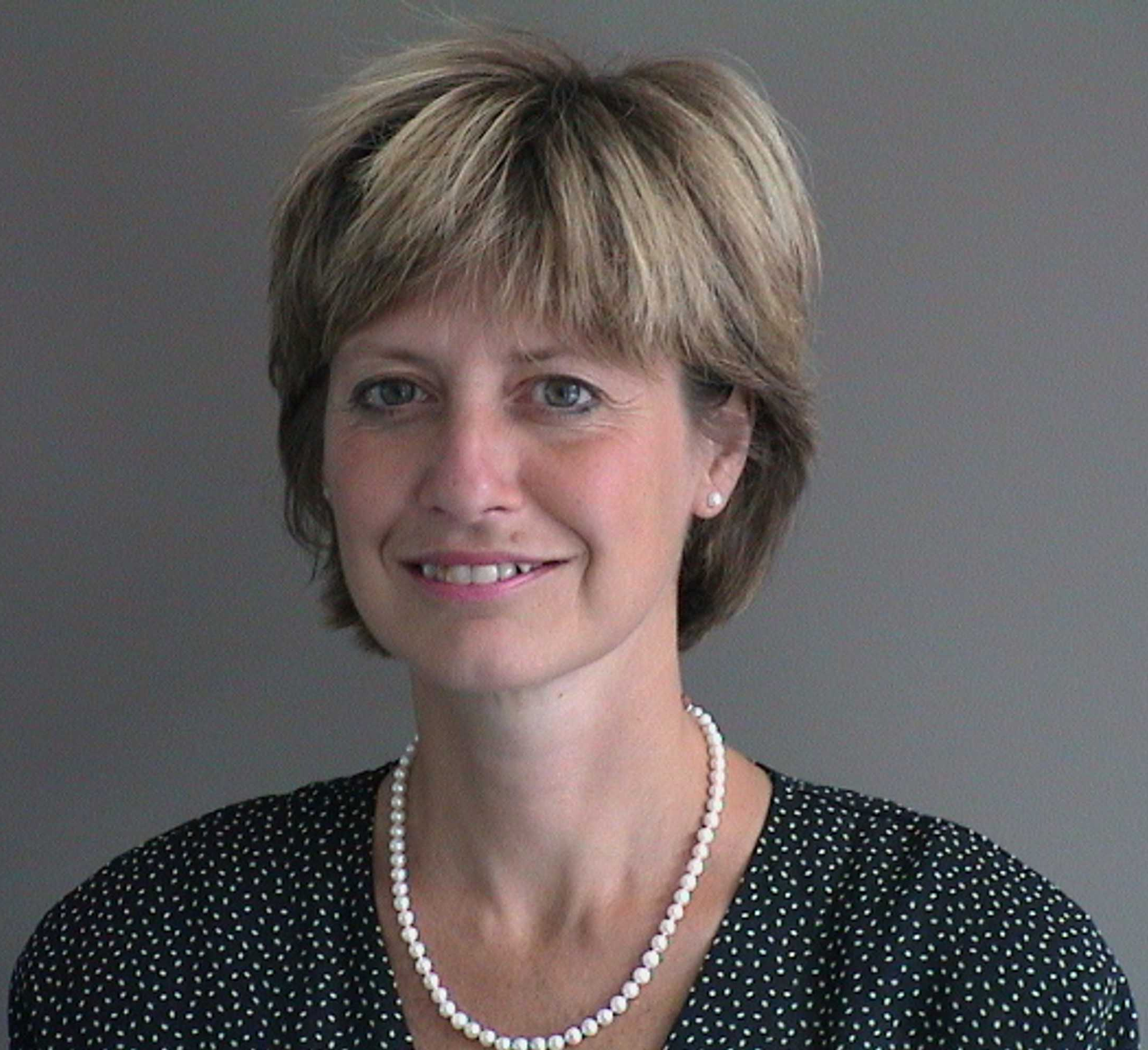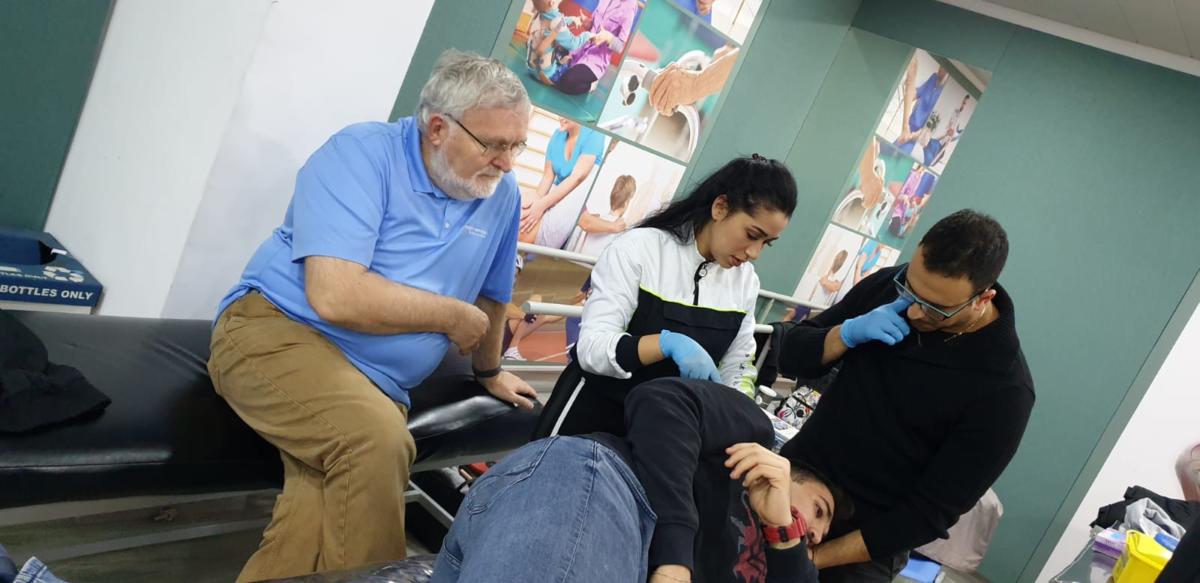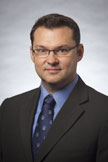Event Information:
-
Sat
24
May
2014
Walking Through and Towards Quality in Physiotherapy
s.jpg) LGU organized a seminar entitled « Walking Through and Towards Quality in Physiotherapy » on Saturday 24 May, 2014. The seminar hosted several professionals in the field who met to discuss how to regulate and standardize the profession.
LGU organized a seminar entitled « Walking Through and Towards Quality in Physiotherapy » on Saturday 24 May, 2014. The seminar hosted several professionals in the field who met to discuss how to regulate and standardize the profession.
At the start of the seminar, Dr. Paul Makhlouf, Dean of the Faculty of Public Health, called attention to the growing number of physical therapists in Lebanon due to public awareness of the need for such therapy to deal with old age ailments and various cases requiring specific physical therapy handling. As a result, there is an urgent need for criteria to standardize and regulate the profession.
Mr. Charbel Habib, Head of the Department of Physical Therapy at LGU, spoke about the evolution of education in the field of physical therapy that used to be confined to graduating technicians before it became part of a higher education program recommended by the WCPT, that is a university diploma including a master degree and a professional PhD.
Following that, Mr. Hassan Karaki, Director of the Research Center for Quality in Physical Therapy, spoke about how quality evolved from its being imposed by suppliers of goods and services to its being defined by the consumers of these goods and the users of these services. He also brought up the socio-professional situation of therapists in Lebanon before stressing that the main objective of the Research Center is to find out what therapists’ needs are in terms of training and self-development and to define a profile for the therapist and the needed qualifications he should possess, what pathologies are being treated and medical prescriptions are proposed along with problems relating to social security, retirement, and the overall situation of the profession in rural areas in Lebanon.
In turn, Mr. Joseph Yammine, expert in quality and standardization systems, focused on the preventive and corrective dispositions that should meet the needs of clients. He also described the content of the documentation pyramid that includes the quality manual, the specific procedures for every activity, and the working documents that keep track of what steps have been taken during the therapeutic process. He also defined some terms relating to quality, such as norms, certifications, audits, processes, control, conformity and non-conformity, and corrective and preventive actions.
Following that, Mrs. Rachelle Rassi Daou, physical therapist and expert in health management, stressed the need to meet the patient’s satisfaction, to boost the image of the profession as well as the need to train professionals on the latest innovations in the field so that they are constantly aware of optimal hygiene practices, the risks involved, and how to apply therapies that are effective and cost efficient.
Mrs. Claude Maroun, Director of the Physical Therapy Center at AUBMC, delivered a SWOT analysis of the profession identifying its strengths as being university qualifications and the code of ethics and its weaknesses as lack of regulations imposed by the government and data provided for the purpose as well as lack of funds to finance research in the field ; while the opportunities lie in the willingness of universities to launch research programs ; and the threats in the tendency the profession has to follow an esthetic rather than a therapeutic trend.
Mrs. Maroun also made various recommendations aimed at boosting the profession through carrying out continuous training for the therapists and working towards effective standardization of the profession. She also spoke about how to set objectives for the case in hand and move towards fulfilling these objectives in the best interest of the patient and how to measure the efficiency of the whole process.
Mrs. Lea Tabet, physical therapist and coordinator of the Physical Therapy Department at LGU, spoke about the standards required for accreditation. She also identified the patient’s rights and needs and the delivery of quality therapy by qualified professionals who are respectful not only of the patient’s needs but also of the security of the environment. She also confirmed that in order to deliver quality therapy to patients, the whole process must be measured against reliable performance indicators.
At the end of the seminar, discussions followed on how to implement the criteria regarding the standardization of the profession in a most efficient manner. (photos attached)
Event Information:
-
Sat24May2014
Walking Through and Towards Quality in Physiotherapy
s.jpg) LGU organized a seminar entitled « Walking Through and Towards Quality in Physiotherapy » on Saturday 24 May, 2014. The seminar hosted several professionals in the field who met to discuss how to regulate and standardize the profession.
LGU organized a seminar entitled « Walking Through and Towards Quality in Physiotherapy » on Saturday 24 May, 2014. The seminar hosted several professionals in the field who met to discuss how to regulate and standardize the profession.At the start of the seminar, Dr. Paul Makhlouf, Dean of the Faculty of Public Health, called attention to the growing number of physical therapists in Lebanon due to public awareness of the need for such therapy to deal with old age ailments and various cases requiring specific physical therapy handling. As a result, there is an urgent need for criteria to standardize and regulate the profession.
Mr. Charbel Habib, Head of the Department of Physical Therapy at LGU, spoke about the evolution of education in the field of physical therapy that used to be confined to graduating technicians before it became part of a higher education program recommended by the WCPT, that is a university diploma including a master degree and a professional PhD.
Following that, Mr. Hassan Karaki, Director of the Research Center for Quality in Physical Therapy, spoke about how quality evolved from its being imposed by suppliers of goods and services to its being defined by the consumers of these goods and the users of these services. He also brought up the socio-professional situation of therapists in Lebanon before stressing that the main objective of the Research Center is to find out what therapists’ needs are in terms of training and self-development and to define a profile for the therapist and the needed qualifications he should possess, what pathologies are being treated and medical prescriptions are proposed along with problems relating to social security, retirement, and the overall situation of the profession in rural areas in Lebanon.
In turn, Mr. Joseph Yammine, expert in quality and standardization systems, focused on the preventive and corrective dispositions that should meet the needs of clients. He also described the content of the documentation pyramid that includes the quality manual, the specific procedures for every activity, and the working documents that keep track of what steps have been taken during the therapeutic process. He also defined some terms relating to quality, such as norms, certifications, audits, processes, control, conformity and non-conformity, and corrective and preventive actions.
Following that, Mrs. Rachelle Rassi Daou, physical therapist and expert in health management, stressed the need to meet the patient’s satisfaction, to boost the image of the profession as well as the need to train professionals on the latest innovations in the field so that they are constantly aware of optimal hygiene practices, the risks involved, and how to apply therapies that are effective and cost efficient.
Mrs. Claude Maroun, Director of the Physical Therapy Center at AUBMC, delivered a SWOT analysis of the profession identifying its strengths as being university qualifications and the code of ethics and its weaknesses as lack of regulations imposed by the government and data provided for the purpose as well as lack of funds to finance research in the field ; while the opportunities lie in the willingness of universities to launch research programs ; and the threats in the tendency the profession has to follow an esthetic rather than a therapeutic trend.
Mrs. Maroun also made various recommendations aimed at boosting the profession through carrying out continuous training for the therapists and working towards effective standardization of the profession. She also spoke about how to set objectives for the case in hand and move towards fulfilling these objectives in the best interest of the patient and how to measure the efficiency of the whole process.
Mrs. Lea Tabet, physical therapist and coordinator of the Physical Therapy Department at LGU, spoke about the standards required for accreditation. She also identified the patient’s rights and needs and the delivery of quality therapy by qualified professionals who are respectful not only of the patient’s needs but also of the security of the environment. She also confirmed that in order to deliver quality therapy to patients, the whole process must be measured against reliable performance indicators.
At the end of the seminar, discussions followed on how to implement the criteria regarding the standardization of the profession in a most efficient manner. (photos attached)
-
Mon06Jul2020
Biomedical Technologies Department Achievement
 Another achievement for LGU’s Biomedical Technologies Department. Congratulations to Joseph KHATTAR and Carla ZEINE for having their paper “Implementation of a Monitoring System that Notifies Healthcare Providers of a Sudden Medical Emergency Occurring to a Driver” accepted in a book entitled “Vital Signs: an Overview”. The book is edited by Dr. Roy ABI ZEID DAOU, Head of the Biomedical Technologies Department at LGU, and Professor Josef BOERCSOK, Chairperson of the Computer Architecture and System Programming Department at Kassel University. The book is published by Nova Science Publishers.
Another achievement for LGU’s Biomedical Technologies Department. Congratulations to Joseph KHATTAR and Carla ZEINE for having their paper “Implementation of a Monitoring System that Notifies Healthcare Providers of a Sudden Medical Emergency Occurring to a Driver” accepted in a book entitled “Vital Signs: an Overview”. The book is edited by Dr. Roy ABI ZEID DAOU, Head of the Biomedical Technologies Department at LGU, and Professor Josef BOERCSOK, Chairperson of the Computer Architecture and System Programming Department at Kassel University. The book is published by Nova Science Publishers.
-
-
Mon14Oct2019
Visit of Professor Dr. Michel Landry to LGU As An Expert in The DPT Field
-
|
|
|
Mon
14
Oct
2019
Visit of the Canadian Professor Dr. Helene Corriveau to Participate in the DPT Curriculum as a Visitor

The Lebanese German University – LGU is pleased to host Canadian Professor Hélène Corriveau for her participation in the Doctorate Physical Therapy (DPT) curriculum as a visitor. |




